
Here’s what the world’s leaders had to say at the UN
Competing visions for world diplomacy were on show at the UN General Assembly on Tuesday.
UN Secretary-General Antonio Guterres
In his inaugural General Assembly speech since taking the reins of the United Nations on January 1, Guterres warned the world’s leaders that the threat of a nuclear attack was at its highest level since the end of the cold war and “fiery talk can lead to fatal misunderstandings.”
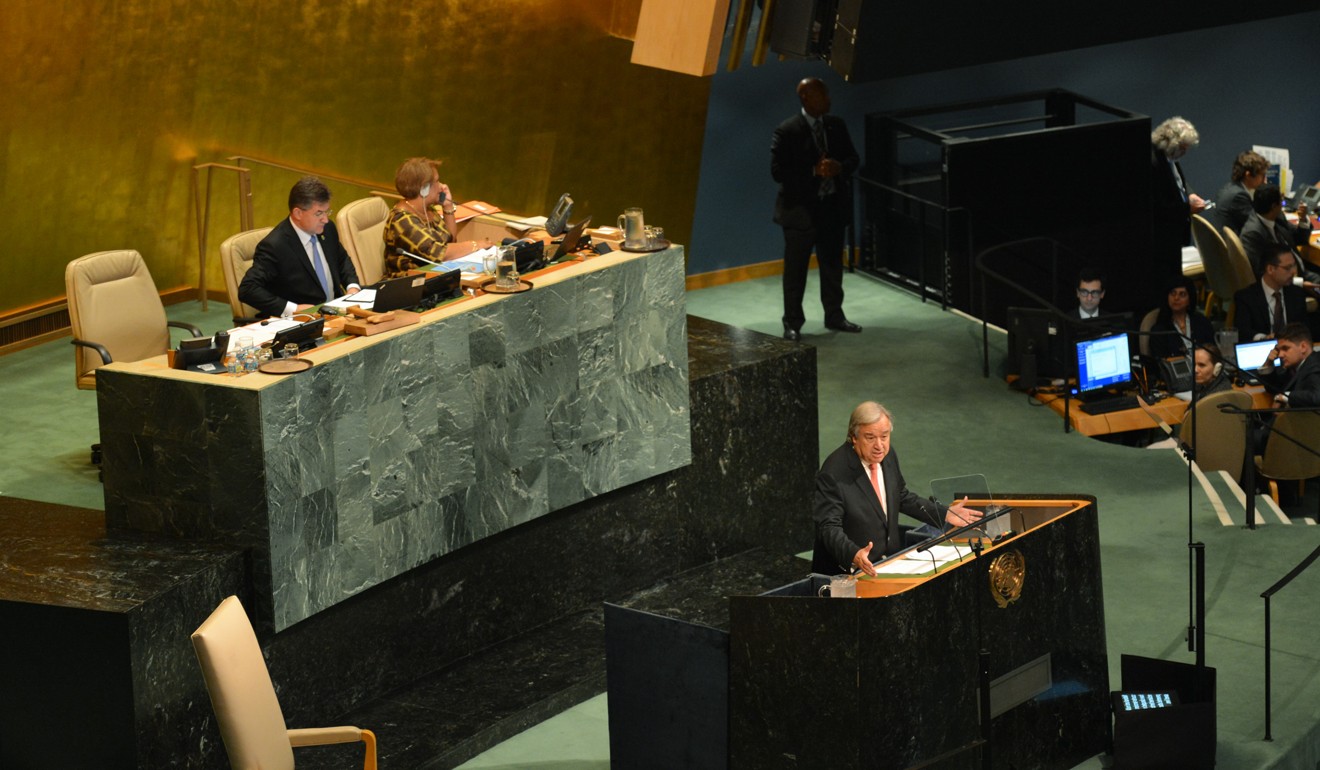
The UN chief told Tuesday’s opening of the General Assembly’s annual ministerial meeting that millions are living in fear “under a shadow of dread cast by the provocative nuclear and missile tests” of North Korea. His message on “fiery” rhetoric was implicitly directed at North Korean leader Kim Jong-un, but also at the United States and President Donald Trump, who has warned of “fire and fury” if North Korea does not back down.
Guterres said a solution to the North Korea nuclear threat must be political and stressed to leaders: “This is a time for statesmanship.”
UN General Assembly President Miroslav Lajcak
The head of the UN General Assembly painted a sombre picture of the world and urged more focus on preventing conflict.
Lajcak said Tuesday that many people have become disillusioned with the UN in a world grappling with conflict, poverty, terrorism and global warming. But, he added, others believe in the UN’s potential to help. He said the UN needed to put more emphasis on warding off conflicts, rather than reacting to them. The Slovakian said that means “recalibrating” to respond better to crises, not seeking more money or help from member countries.
He also called for a more people-centred approach in dealing with terrorism and what he called the “highly divisive” issue of migration.
Brazilian President Michel Temer
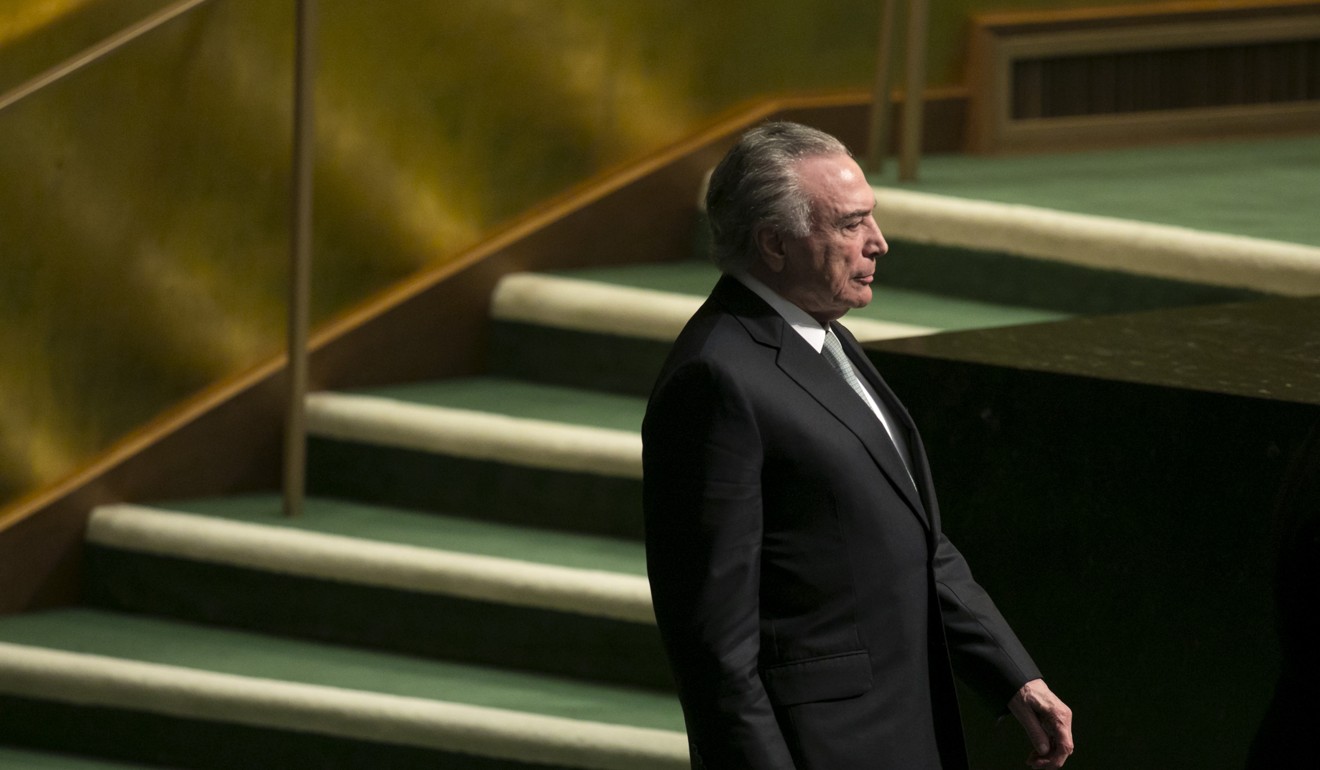
In his speech Temer said that “in this time in history marked by so much uncertainty and instability, we need more diplomacy – not less.”
But Temer said it was imperative to reform the UN, particularly to expand the powerful Security Council to align it with the reality of the 21st century. Brazil is part of a group with Germany, India and Japan seeking permanent seats on the council.
US President Donald Trump
Trump delivered a forceful inaugural speech – warlike at times, flowery at others – that challenged some tenets of US foreign policy, and reiterated his emphasis on national sovereignty.
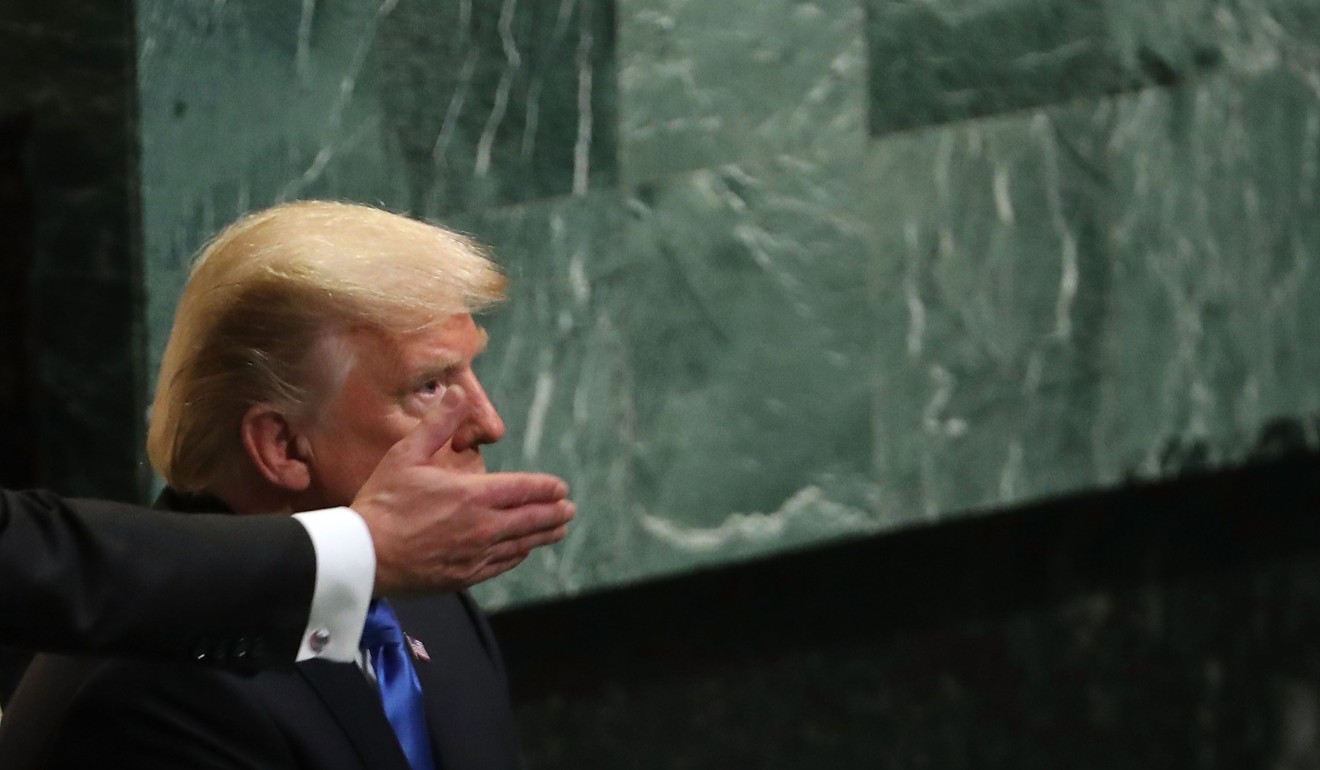
“The United States has great strength and patience, but if it is forced to defend itself or its allies, we will have no choice but to totally destroy North Korea,” Trump added.
Another buzz arose when he warned that parts of the world “are going to hell.” He also vowed to “crush loser terrorists” and condemned a “small group of rogue regimes,” including Iran, for threatening global stability.
“Rogue regimes represented in this body not only support terrorists, but threaten other nations and their own people with the most destructive weapons known to humanity,” he said.
Without mentioning Russia or China by name, he said that “we must reject threats to sovereignty, from Ukraine to the South China Sea.”
Nigerian President Muhammadu Buhari
Buhari said the United Nations needed to keep providing sufficient funding for peacekeeping operations, which have been coming under scrutiny.
Buhari said the international community needed to work together to stop Islamic State extremist fighters from infiltrating into areas of Africa’s Sahel region where “response capacity is weak.” He said the UN must provide “adequate funding” and other support to regional initiatives and peacekeeping operations “in a predictable and sustainable manner.”
French President Emmanuel Macron
Macron delivered an address that championed global cooperation and served as a counterpoint to the emphasis on sovereignty offered by Trump.
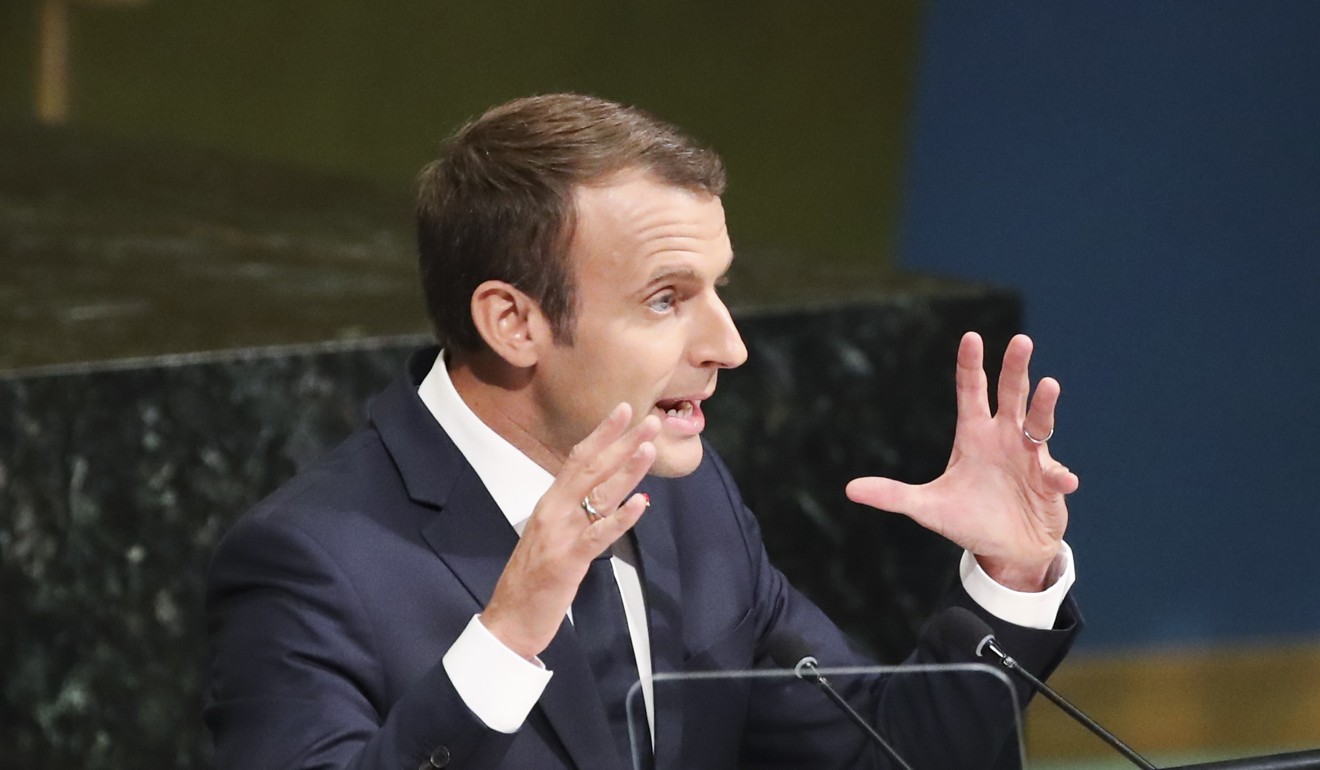
e said the world “including China” bore aresponsibility to help bring North Korea back to the negotiating table, while he praised the Iran nuclear deal that had been derided by Trump.
He said that while he “profoundly respects” Trump’s decision to withdraw from the Paris climate accord, the deal will not be renegotiated, adding that it can be enriched with new contributions, “but we won’t go back.”
Emir of Qatar Sheikh Tamim bin Hamad Al Thani
Tamim condemned the boycott that three Gulf countries and Egypt have imposed on his country, saying it fits one of the definitions of terrorism.
Saudi Arabia, Bahrain, the United Arab Emirates and Egypt have been trying to destabilise his country by enforcing an “unjust” embargo that includes food and medication, he said.
The emir also used his speech to the General Assembly to touch upon regional crises, saying that Israel continued to impede a full and lasting peace by rejecting the Arab peace initiative of 2002 and by continuing its settlement policies in “occupied territories.”
___
Israeli Prime Minister Benjamin Netanyahu
Netanyahu said that as long as Iran sought to destroy Israel it would face no fiercer enemy than the Jewish state, which would take action to prevent Tehran from establishing permanent military bases in Syria.
He called for the “dangerous” nuclear deal with Iran to be scrapped, saying if nothing changes Tehran will follow North Korea and produce hundreds of nuclear weapons.
Netanyahu started his speech to world leaders on a positive note, saying Israel is in the midst of “a great revolution” because “so many nations have woken up to what Israel can do for them” as a leader in innovation, technology, and in recognising its “exceptional capabilities in fighting terrorism.”
Egyptian President Abdel-Fattah el-Sissi
El-Sissi made an impassioned pitch for peace between Israel and the Palestinians, calling for both sides to take advantage of a “rare” opportunity to achieve the elusive goal.
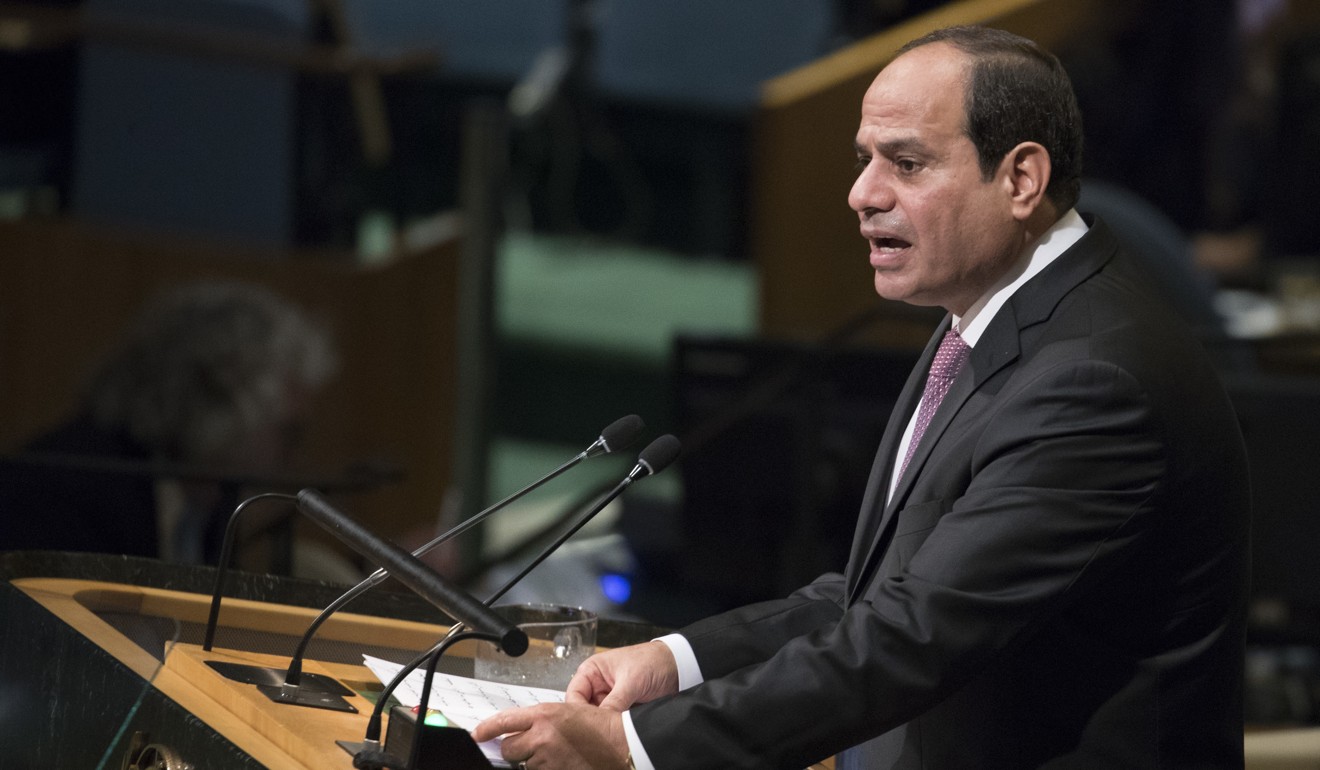
He called on the Palestinians to unite behind a common goal and to accept coexistence with Israel in peace and security. He then urged US President Trump to take advantage of an opportunity that could “write a new page of the history of mankind by establishing peace in this region of the world.”

